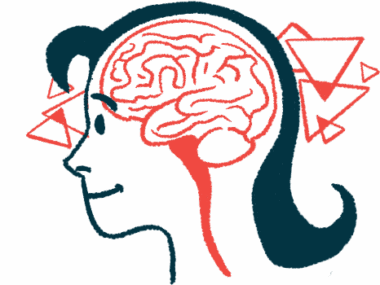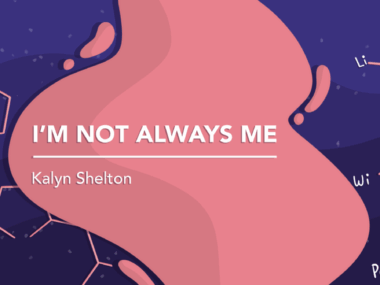This Rare Disease Day, Only Share Your Story if You’re Ready
Written by |

Every February, my inbox fills with information about Rare Disease Day webinars, forums, and promotions. On social media, patients and caregivers raise awareness through campaigns such as #ShowYourStripes or #ShareYourRare. In Washington, D.C., advocates from around the country gather virtually and in-person to ask their members of Congress for support.
Personal stories are perhaps the most powerful tool at our disposal to build relatability and humanize our struggles. They serve as access points to awareness about diseases, research, and gaps in service delivery.
Almost five years ago, I was diagnosed with acute intermittent porphyria (AIP), on Feb. 25, 2017. Three days later, the internet exploded with zebras and testimonials. Recovering from an attack, I spent weeks on the couch with my laptop open. In between naps, I tuned in.
I devoured every story I could find, particularly the ones about adult onset conditions. I scrolled, I cried, and I went down rabbit holes of illness, failure, and compromised dreams. Even the hopeful posts were heartbreaking.
I learned an important lesson from that crash course in rare disease life: our stories are our trauma.
Our stories are our trauma
When I was diagnosed, sharing my story was the last thing I wanted to do. I had gone undiagnosed for nearly two decades, and healthcare providers had frequently belittled or dismissed me during that time. This gaslighting eventually led me to believe my pain was, in fact, all in my head.
I value advocacy, so it was important for me to get to a place where I could safely share. It helps that I have a super strong support system, or I’d be nowhere near that place.
Sadly, medical trauma like this is not uncommon for rare disease patients. For those of us lucky enough to have answers for our symptoms, a diagnosis may do wonders to ease the shame. But that alone won’t take away the trauma.
Before I could even consider sharing my story, I needed help treating my medical post-traumatic stress disorder. After years of therapy and growth, I’ve navigated to a place where I can talk about my rare disease journey without breaking down. Still, there are aspects that will bleed fresh and activate me if I’m not cautious.
When I think of all I’ve been through just to get to a place where I can safely talk about my medical trauma, I feel protective of patients. Do they feel pressured to talk about their rare diseases? Do advocacy organizations understand what they’re asking with the hashtag “Share Your Rare”?
Our stories are our currency
I already felt like the girl with the weird disease no one could pronounce, but I had a choice to share my truth with the world.
When I began to tell my story, I knew it was risky to put myself out there. I had to understand that no matter how carefully I peeled open the lid, I’d have little control over how the world received me. I had to be ready to educate about my rare disease and be prepared for ableist remarks. Plus, going public by sharing my diagnosis had heavy implications for my life, from my job to my relationships.
What I’m trying to say is: If you’re not ready to share, I get it.
Many people with rare diseases like AIP have had to give up careers and aspirations. Managing our health must become a full-time job, and over the years, we become experts in living with our rare diseases. That rich, real-world experience goes beyond any questionnaire or published research. Our stories are incredibly valuable.
This year, there are various ways to get involved if you’re comfortable contributing to the conversation on your terms. But don’t look at a caregiver’s or advocate’s experience talking about rare disease or even sharing their stories. It takes a different level of emotion for a patient to share their highly personal and emotional journey.
Rare disease stories are important, but too little consideration is given to their impact on patients’ mental health. This Rare Disease Day, don’t let the pressure to share get in the way of your mental health. Our stories are powerful, but so are our boundaries.
If you’re not ready to share, it’s OK.
Note: Porphyria News is strictly a news and information website about the disease. It does not provide medical advice, diagnosis, or treatment. This content is not intended to be a substitute for professional medical advice, diagnosis, or treatment. Always seek the advice of your physician or other qualified health provider with any questions you may have regarding a medical condition. Never disregard professional medical advice or delay in seeking it because of something you have read on this website. The opinions expressed in this column are not those of Porphyria News or its parent company, Bionews, and are intended to spark discussion about issues pertaining to porphyria.






Leave a comment
Fill in the required fields to post. Your email address will not be published.